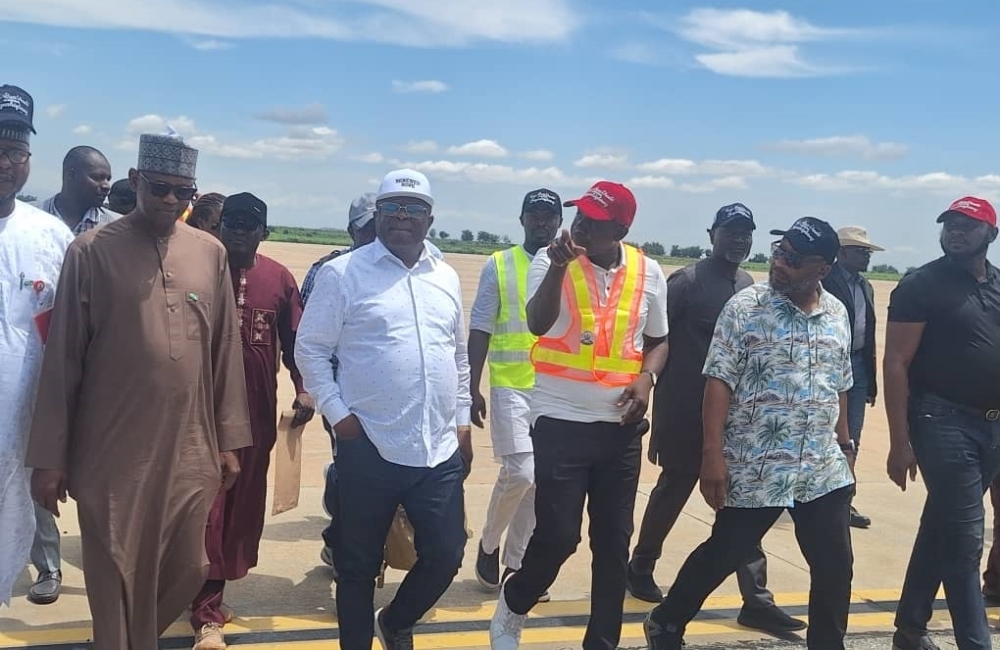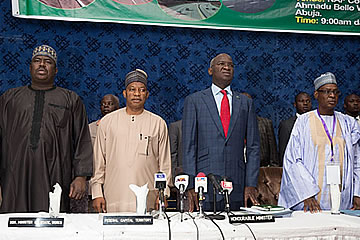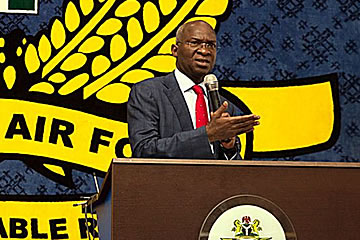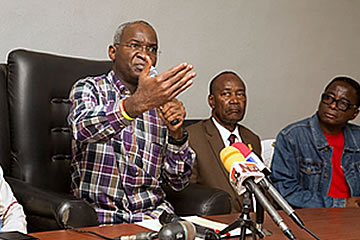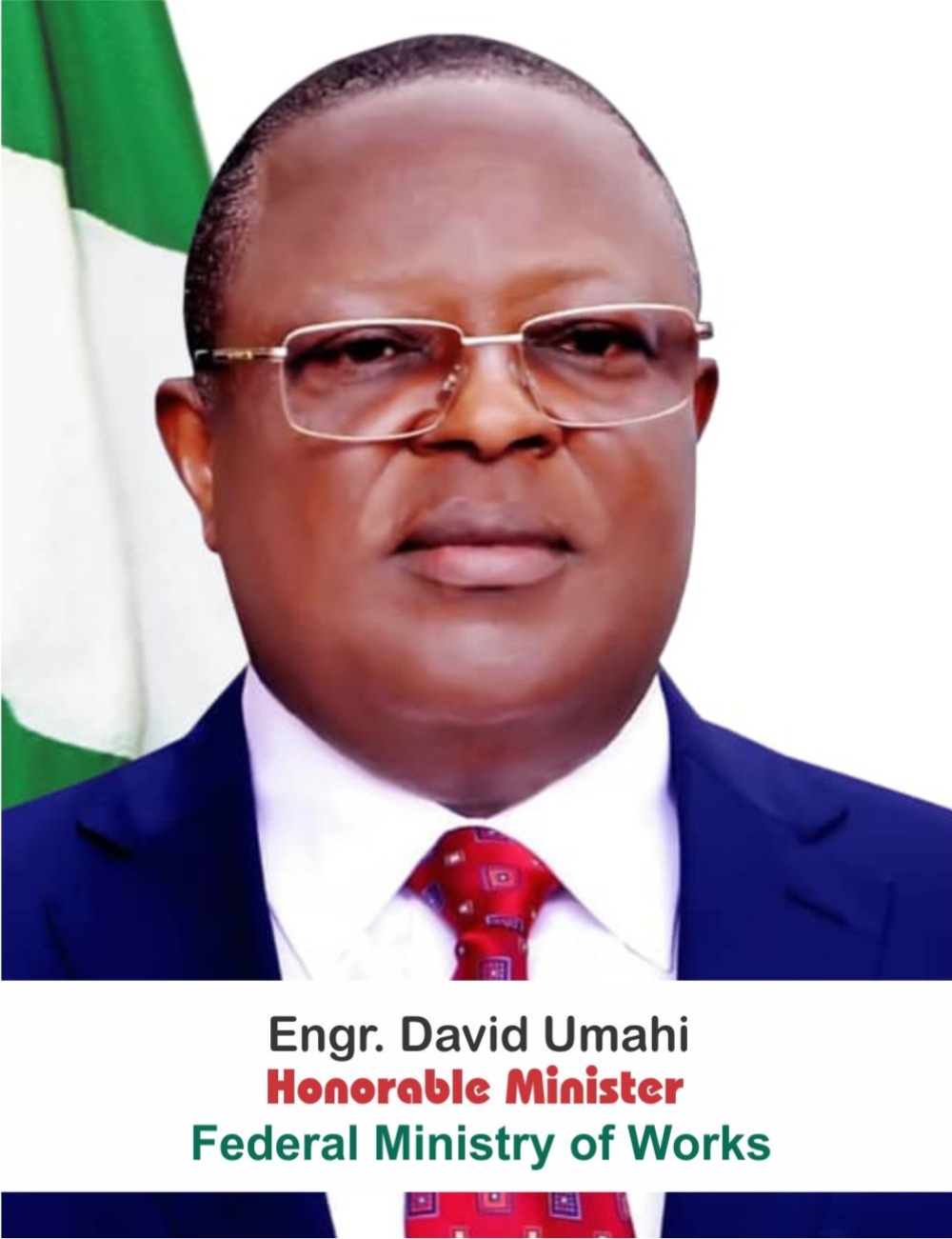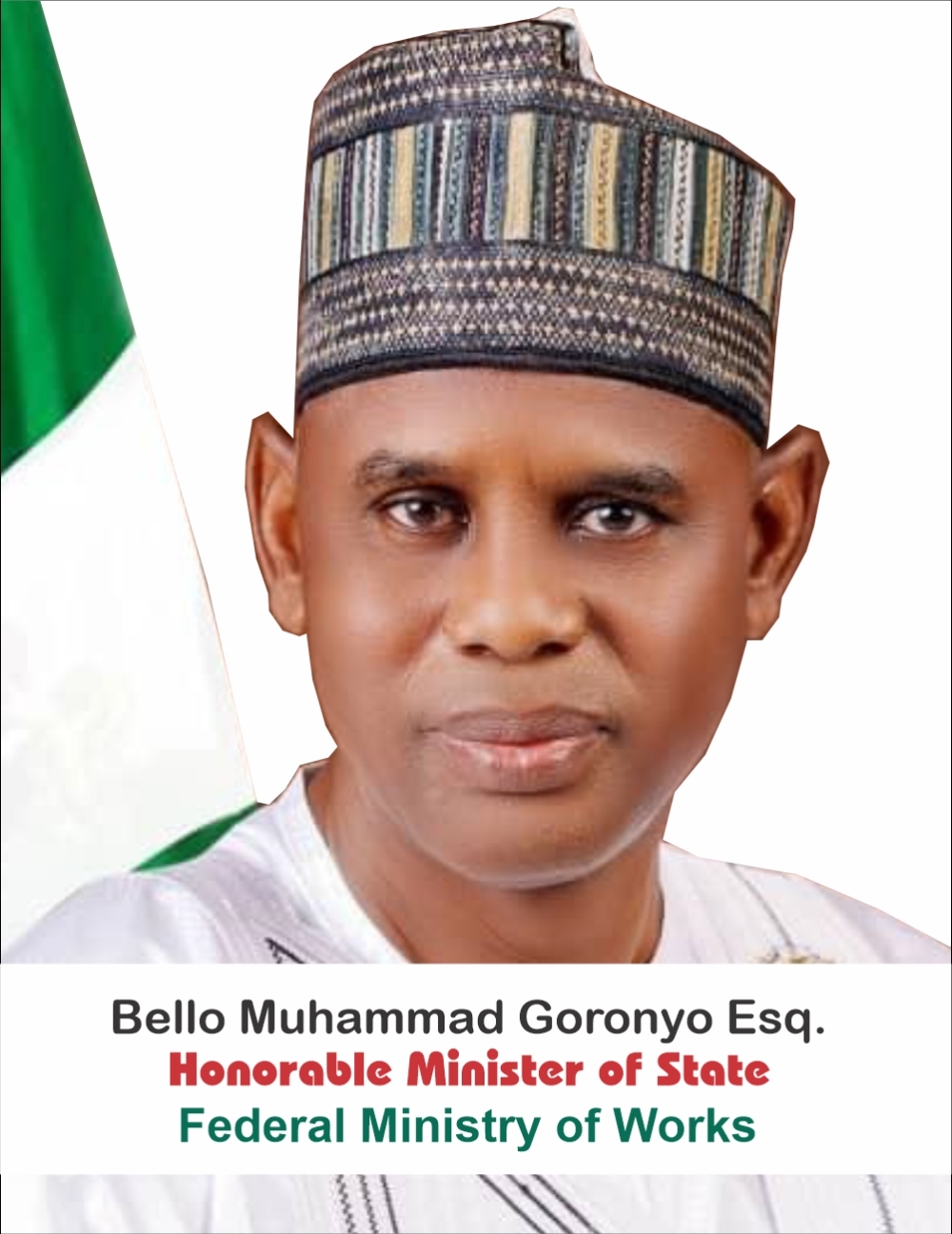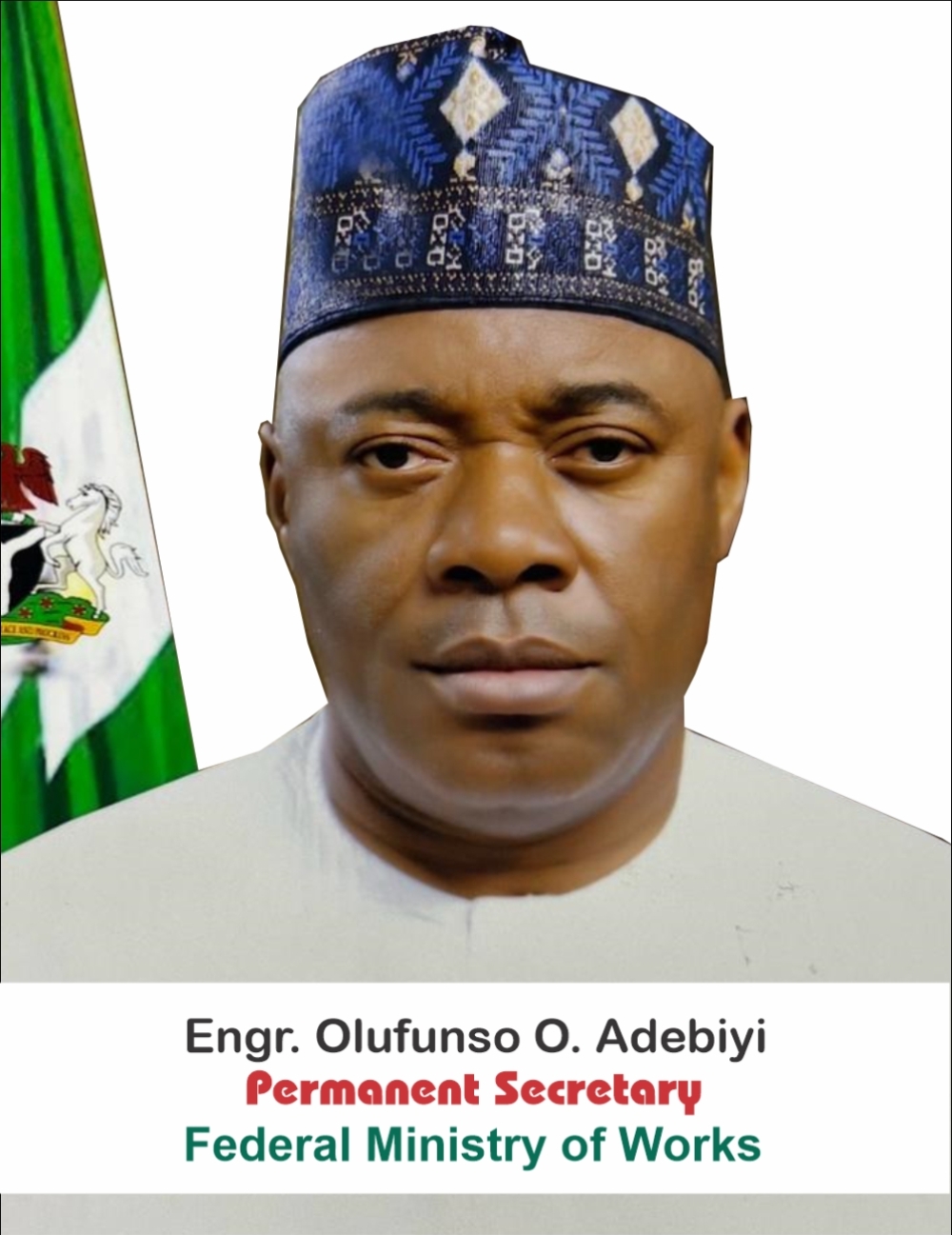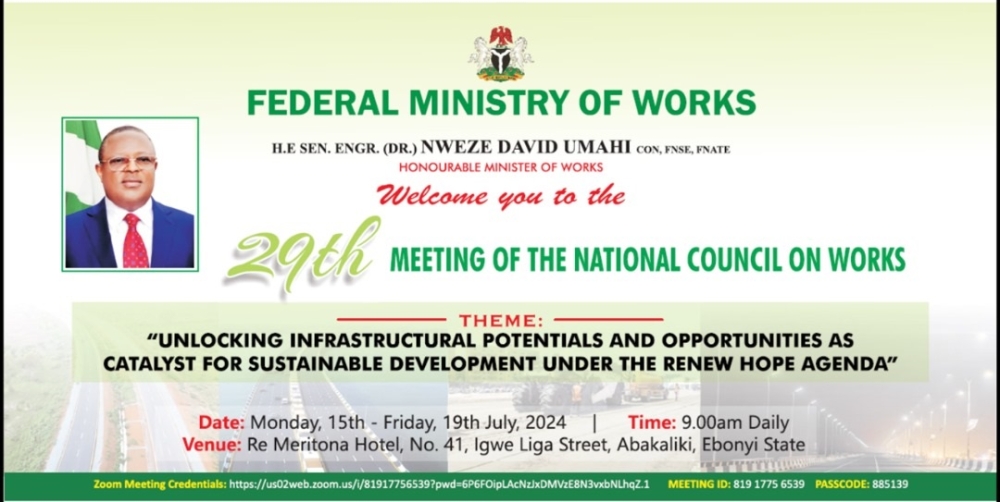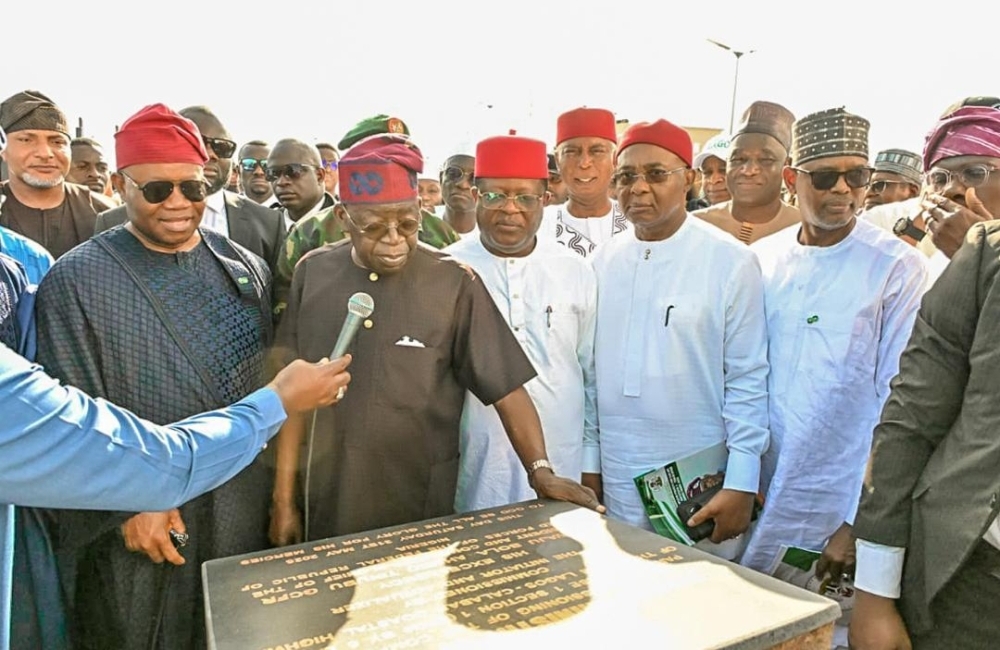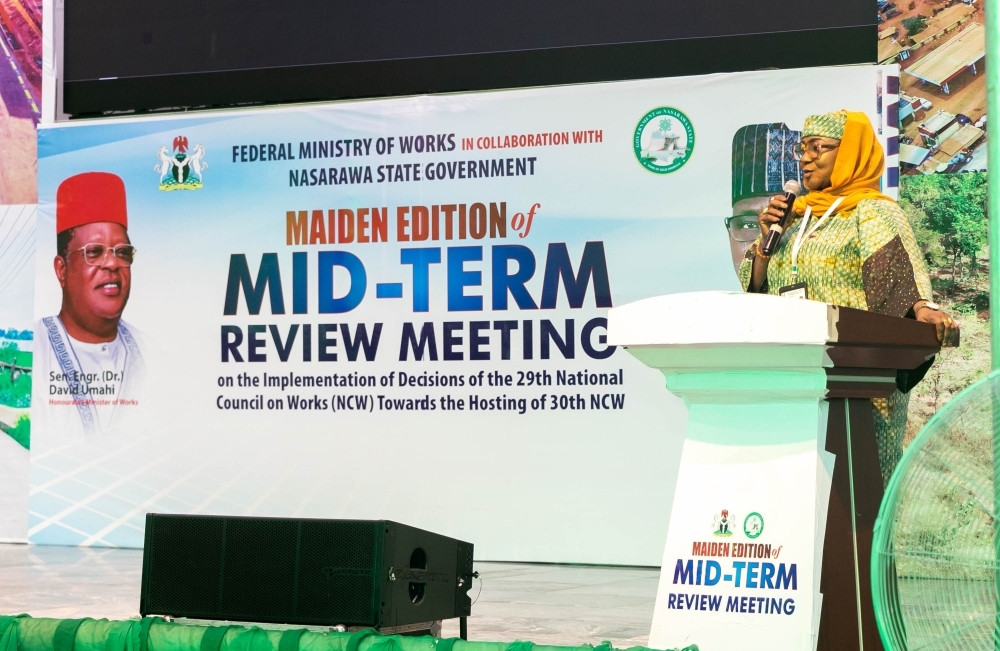Fashola Stresses Need To Raise Nation’s Road Transport Infrastructure To Global Standard To Aid Mobility
* As 23rd Meeting of National Council of Works ends in Abuja
* �Our development, prosperity, survival is tied to our mobility and so is our productivity, social and cultural interactions�, he says
* Ministry to award sub-contracts on roads with sections significantly completed, for procurement in collaboration with the main contractors; to be advertised as required by law,subject to open , competitive bids
The Minister of Power Works and Housing, Mr. Babatunde Fashola SAN, Thursday stressed the need to raise the country’s transport infrastructure, especially road signage, to acceptable global standard as a means to aid mobility across states and communities within the country.
Fashola, who spoke at the NAF Air Conference Centre venue of the 23rd Meeting of the National Council on Works with the theme, “Adequate Traffic Signage- An Essential Key for Highways Infrastructure, Safety and Comfort,” said the current efforts in building roads, highways and bridges across the country would hardly achieve the objective of mobility if the destinations of these critical transport infrastructures currently being built were not made known through appropriate signage.
In his keynote address at the event, also attended by the Minister of State, Hon. Mustapha Baba Shehuri, top Ministry Officials and Legislators as well as Commissioners responsible for Works from the states of the Federation and the Federal Capital Territory, said the need had become more urgent as mobility had become a major commitment of the global urban agenda.
According to the Minister, “As human beings, mobility has become a major commitment of the global urban agenda. This must be so because our development, prosperity and sometimes our survival are tied to our mobility and so is our productivity, social and cultural interactions”.
“Yes, we have to build roads, highways and bridges. But the question then is: Roads, highways and bridges to where? Where do they lead?”, he asked, adding that maps alone would not adequately answer the questions without road signs, which, according to him, “indicates to road users, how far their journey is, how far they have progressed, how much is left to travel”, among other things.
Noting that before the advent of Internet, smart phones and apps, many countries developed maps to help guide transport infrastructure users through their network of roads, Fashola added that road signs would also indicate to road users how far away they were from one village, city, local government, or from critical services like hospitals, fuel stations and hotels or motels “to help ease the stress and tedium of long distance travel”.
The Minister, who expressed sadness that road signs were either non-existent or largely insufficient on the nation’s highways, added that this has made travel through unfamiliar cities and towns across the country difficult pointing out that it would be a herculean task driving by oneself into a city one had never been as one would be ignorant of where to link the next interstate highway, or expect to buy fuel or plan to sleep for the night on a long journey or get medical help in case of a road traffic accident.
He said the proliferation of global, country and state maps on the handheld devices has made it both compelling and urgent for the country to start developing and installing signage on her roads, bridges and highways at interstate and intra-state levels adding, “This is one sure way of facilitating mobility and implementing the local component of the global urban agenda for the benefit of our people”.
Fashola expressed delight that Nigeria, under the leadership of President Buhari, has played a critical and positive role in developing a common African position since 2016 that has helped to shape the Global Urban Agenda adopted in Quito, Ecuador this year to guide the global development until 2036, adding, “What is left is for us, as champions of that African position and urban agenda, to begin to localize and implement its component parts for the benefits of our people”.
Pointing out, however, that it would not be enough to just simply erect any type of sign, in any place or anyhow, the Minister, who noted that they must be produced according to specifications and enduring materials, and “be installed to a minimum standard that ensures their durability, endurance and utility for commuters”, commended the staff of the Works sector of his Ministry for their hard work in developing the specifications and standards.
He also acknowledge the technical support and cooperation that the Corp Marshal of the Federal Road Safety Corps (FRSC) and his team had afforded the Ministry “in the process of developing the size, quality and lettering specifications of these signs”, adding that they would help commuters to navigate their journey across the country as “the human benefit of signage and our mobility policy”.
On the direct economic benefits of traffic signage, Fashola noted that the existence of highway signs was the reason why “the car rental business and its collateral employment thrives in some countries and not in our own”, adding that it would provide financial reward for those who would benefit from the contracts as well as jobs and the financial rewards that would come from producing the signs, fabricating the steel, printing the signs, and the labour to be employed in installing them.
“These benefits are also true of lane marking”, the Minister said adding, “This is why we have chosen this National Council, where states are represented, professional groups are represented and the requisite technical personnel are present to unveil this policy and programme”.
He said Nigeria’s economic needs compelled her to commence the installation of the signage while her roads were still in various stages of completion, instead of waiting until everything was done before beginning “to confer the benefits of lane marking and street signage on our people”.
Fashola disclosed that the Ministry had agreed to compile the list of roads where significant sections have been completed, and prepare them for procurement and award of sub-contracts in collaboration with the main contractors adding that the procurement would “then be advertised in due course as required by law and subject to open and competitive bids”.
Insisting that those who benefit from the contracts perform them to the highest standards of quality, the Minister declared, “We understand that signs can be damaged, and road markings require periodic touching up”, adding that as more sections of roads reach completion they would be subject to similar processes with the expectation that the process would be continuous.
“Therefore, we see a future of maintenance jobs and contracts going forward, to create sustained employment in our road transport sector”, he said adding that there was no better time than this period when the nation’s economy needed “to be creative in order to provide inclusion for unemployed young able-bodied people”.
Commending the theme of the Council Meeting ‘Adequate Traffic Signage - An Essential Key for Highways Infrastructure, Safety and Comfort’ as apt, Fashola declared, “I could think of no better time, when our economy needs and I can think of no better forum than this National Council of Works, to discuss the economic, safety, and people-oriented basis of this policy, to address the theme of this council”.
The Minister, who urged that all hands should be on deck “in order to ensure that the benefits of this policy reach all the sectors of our economy and the people they are designed for”, expressed the hope that the government would be able to count on the stakeholders to ensure the successful implementation of the policy.
Earlier, in his goodwill message, Chairman of the Federal Character Commission, Dr. Shettima Bukar Abba, expressed delight that since Fashola assumed duties as Minister of Power, Works and Housing, the National Council on Works had made tremendous efforts in completing and initiating critical projects of monumental importance to drive and reinvigorate economic development in the country.
The Chairman, who listed such critical projects to include the Kano-Maiduguri dual carriageway, the Second Niger Bridge, which he noted had defied previous governments, numerous Power and Housing projects springing up in every state of the Federation, pointed out that they were projects that cut across, not only geopolitical zones, but also all states of the Federation.
“These projects and infrastructural facilities are, no doubt, fulcrum of national unity and integration”, he said expressing delight that the 2017 Budget allocation to the Ministry of Power Works and Housing “has taken into consideration regional and national spread in citing projects to be executed”, he said.
Commending the Minister and his State counterpart for the monumental efforts in driving progress, the Chairman declared, “The Minister’s pedigree as accomplished administrator who has turned Lagos to a model city is gradually being replicated across the country. His zeal, tenacity, passion and workaholic nature is driving the change mantra. We have no doubt that sooner than later the infrastructural deficit the country faces will be a thing of the past”.
Also present at the event were the Federal Capital Territory Minister, Mohammed Musa Bello represented by the Executive Secretary, Federal Capital Development Authority, Engr. Umar Jibril, Permanent Secretary (Power), Engr. Louis Edozien , Chairman, Committee on Works, House of Representatives, Hon. Toby Okechukwu, among many other dignitaries and stakeholders.
...
